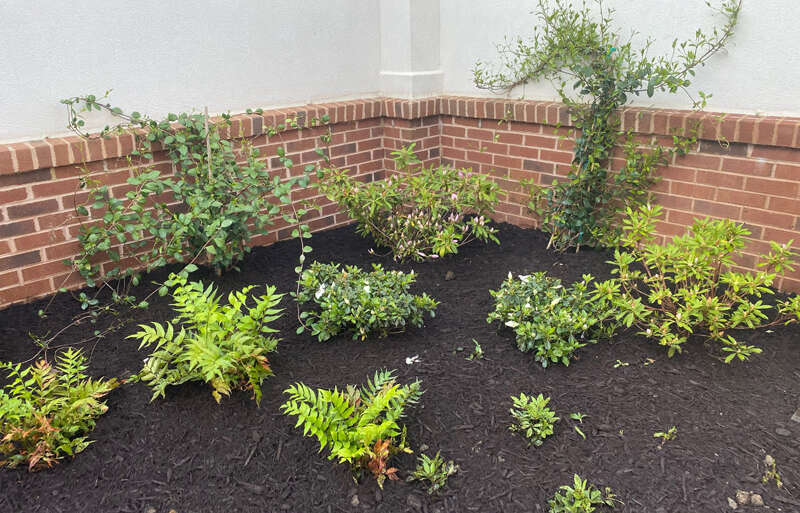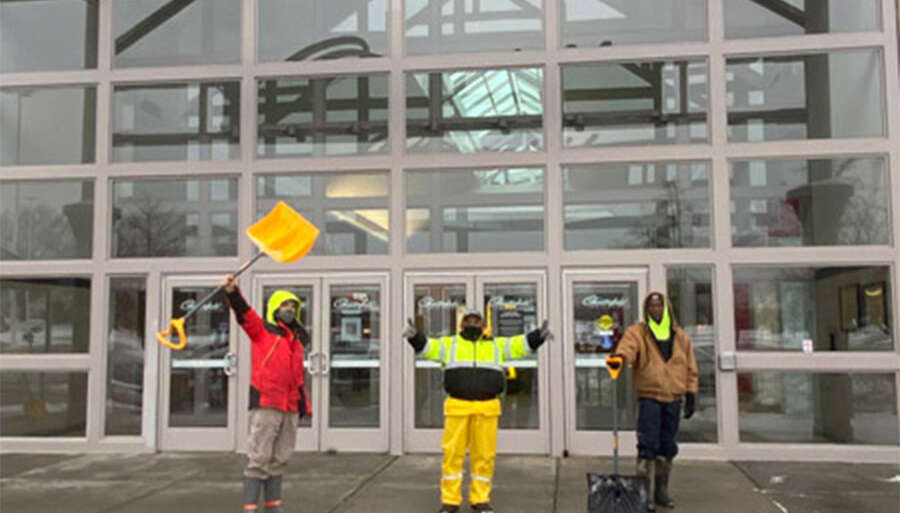Residential Landscape Management

Plant Care and Landscape Maintenance
Rosette is starting to strike in the Central Virginia area. If you have knock out roses in your landscape you must be on the lookout for the signs of this disease and treat them immediately to reduce the risk of spreading. Here are some suggested tips on how to manage this disease.
Integrated Pest Management Strategies:
1. Remove ornamental roses with symptoms.
The entire plant including the roots should be removed
and destroyed by burning or placing in a plastic bag. Care must be taken when working with diseased plants as you can facilitate spread of the mites that spreads the disease. Bag the plant before removal, cut it at ground level and then dig out the plant’s roots. Soil need not be removed. Clean tools and put on fresh clothing before moving to a disease-free plant or area.
What Damage Looks Like
2. Plant ornamental roses as far away as possible from known stands of multiflora rose.
The general recommendation is maintain at least 300 feet between your roses and any stands of multiflora rose. Even greater distance is preferred especially if they are upwind of your desirable rose plants.
3. Control the disease by controlling the mite.
Start mite control early by pruning your roses hard in late winter (back by 2/3) to remove as many overwintering mites as possible and then spray with horticultural oil to kill any remaining mites. Organic pesticides such as horticultural oils and insecticidal soap are recommended over other pesticides as these organic pesticides are less harmful to natural predators that feed on the problem mites. Apply weekly during the months of June and July paying particular attention to the new growing tips where the mites will congregate. Refrain from using leaf blowers around roses as they can spread mites.
4. Help to isolate potential problems.
Do not plant roses too close together. With extra space between the plants mite movement can be reduced. Also, consider interplanting roses with other ornamental plants.
5. Using rose rosette disease as an IPM strategy.
The multiflora rose is an exotic invasive species that is responsible for the degradation of millions of acres of farmland and recreational areas. Using the disease to control this invasive weed can cut costs and be considered environmentally friendly for reducing the amount of synthetic chemicals used. However, the disease also affects cultivated roses. One should be extremely cautious and good neighbor-minded when it comes to rose rosette disease.
BCLS Landscape Services of Ashland, Virginia
COMMERCIAL and RESIDENTIAL SERVICES
Have questions? Please free to contact us at 1.888.538.2257 for all your landscape and horticultural needs.



